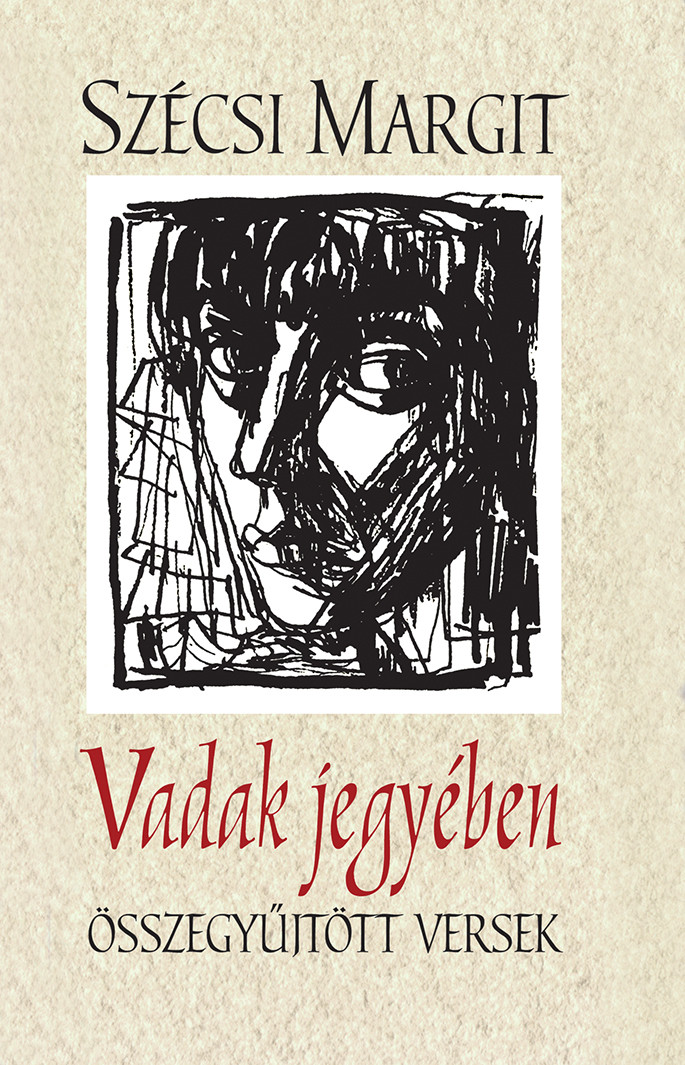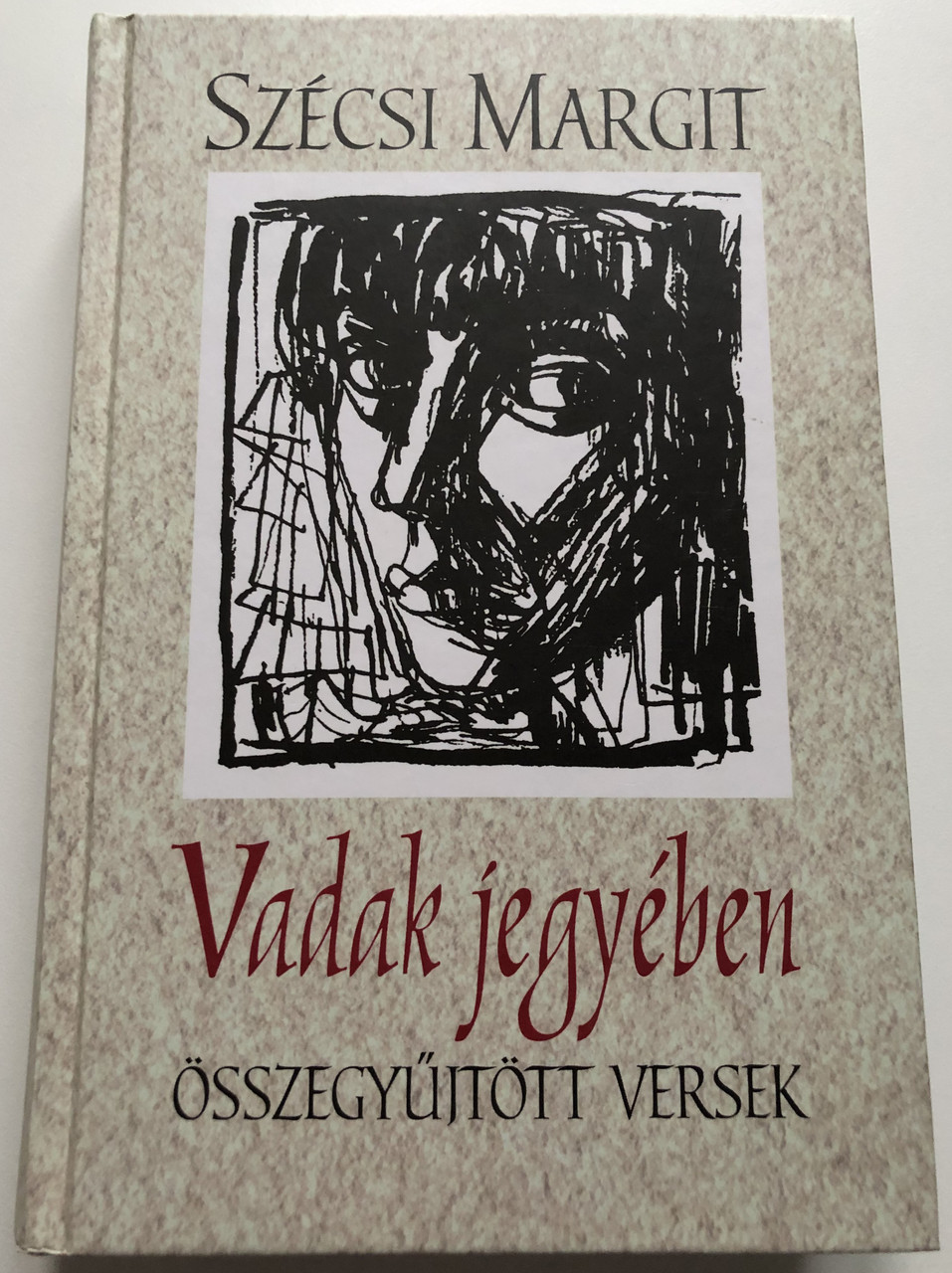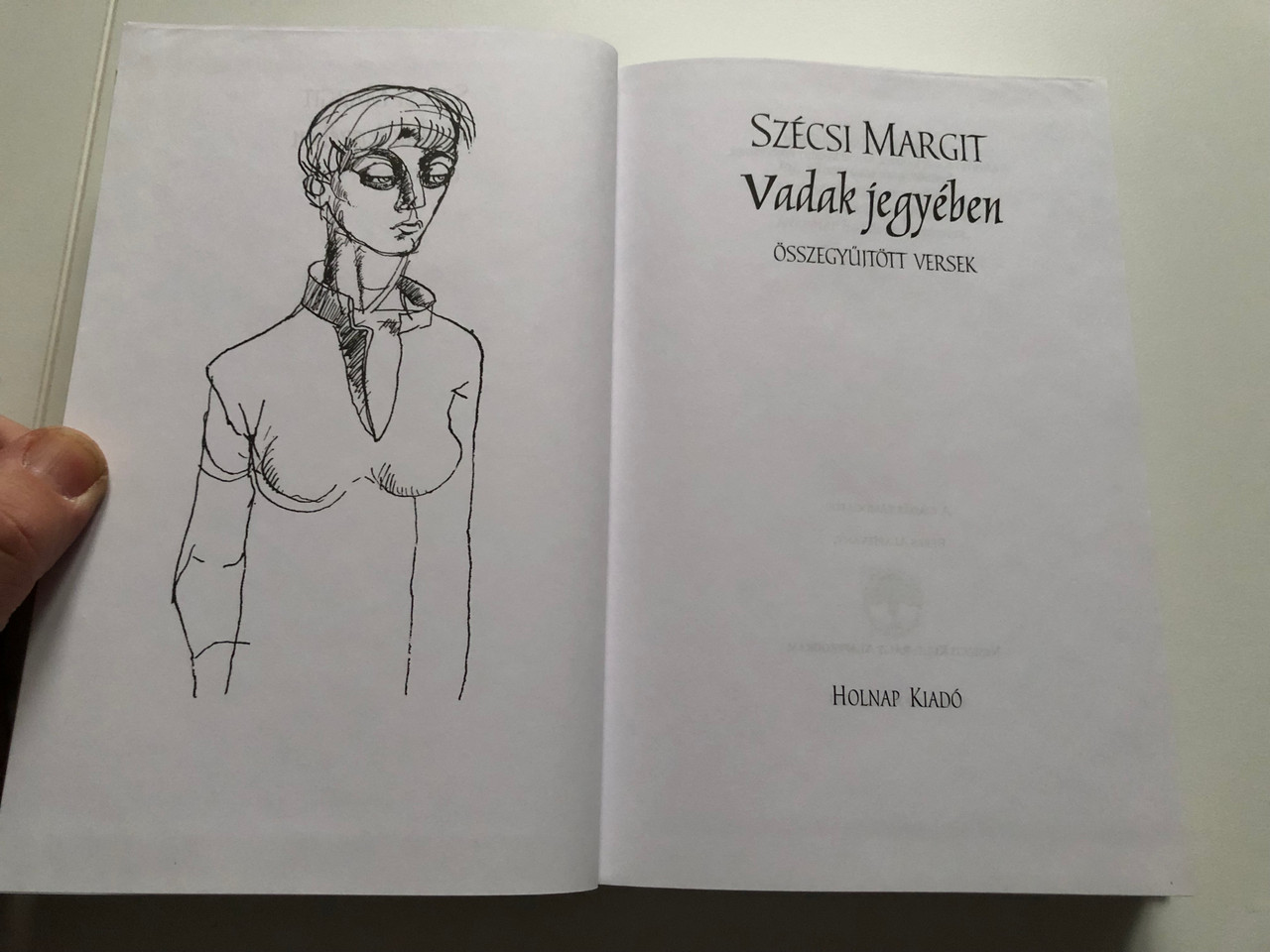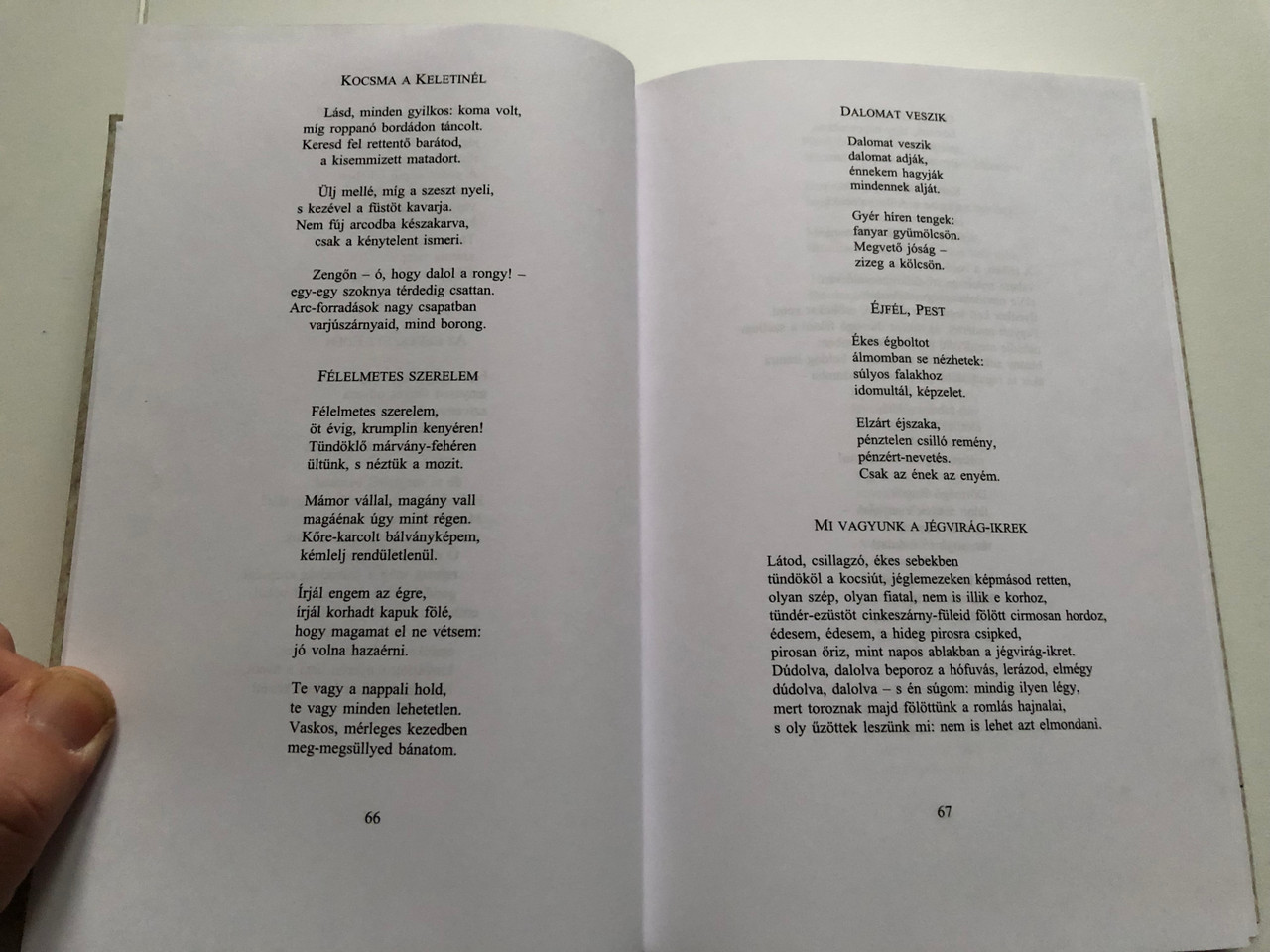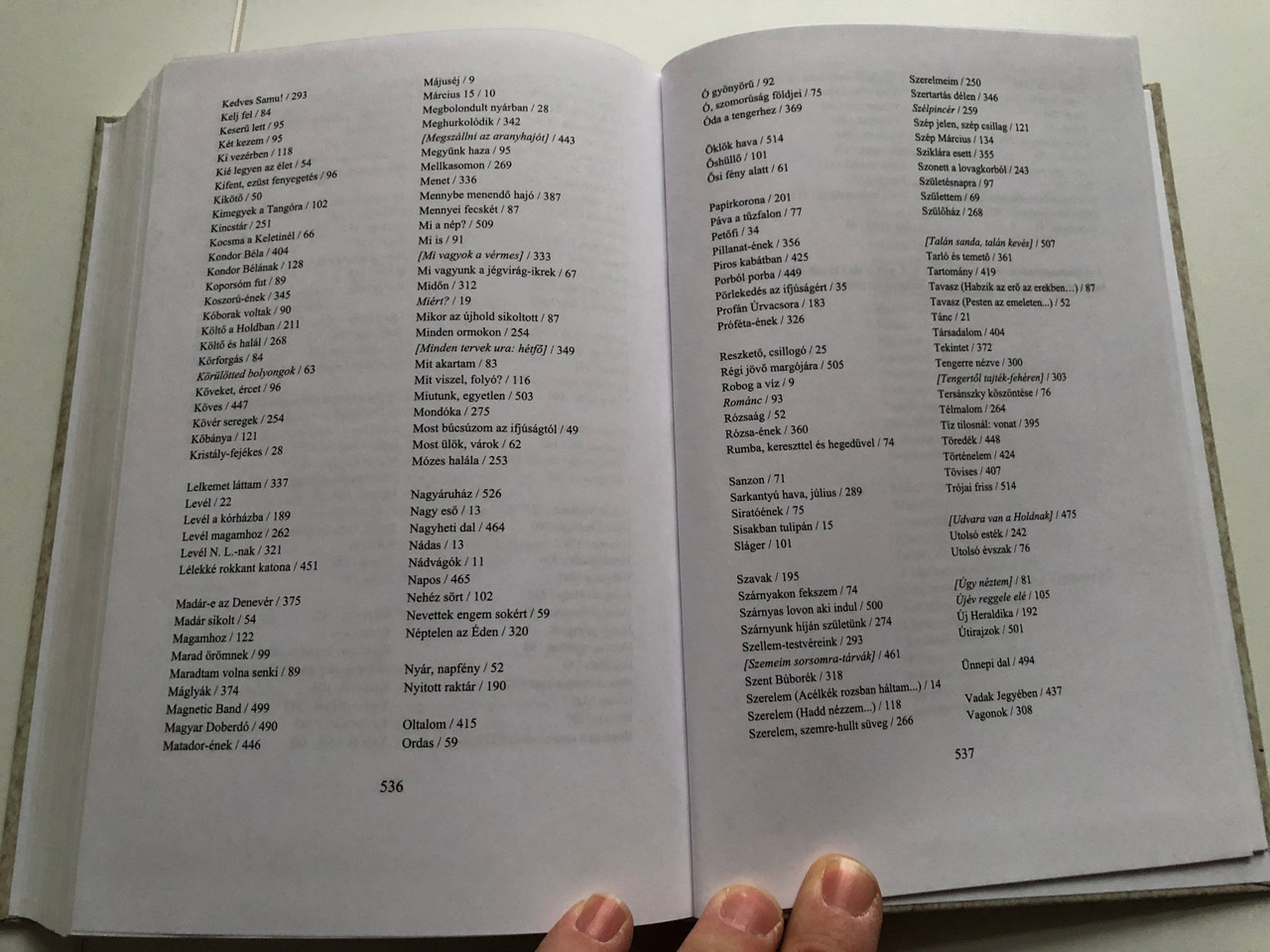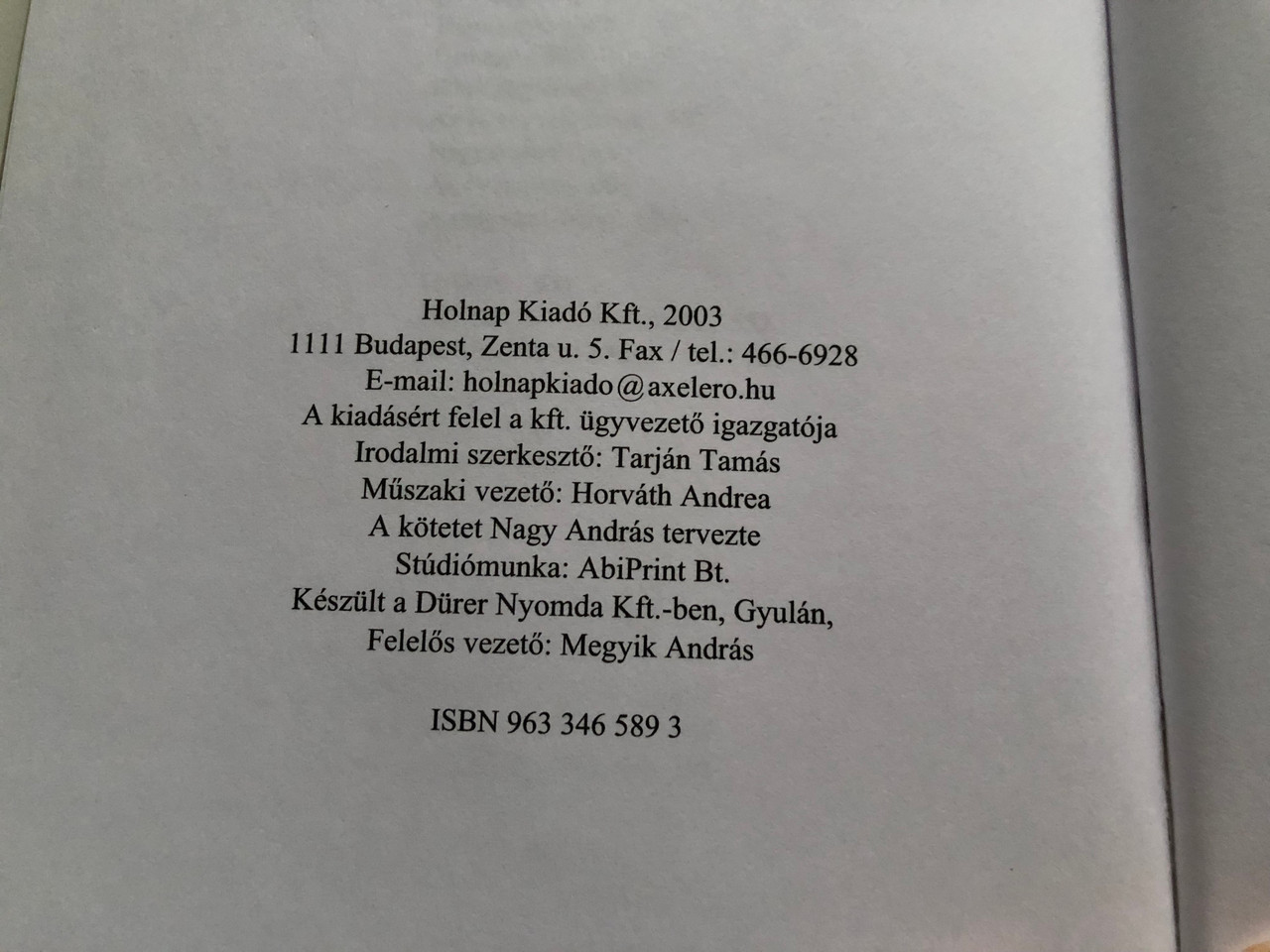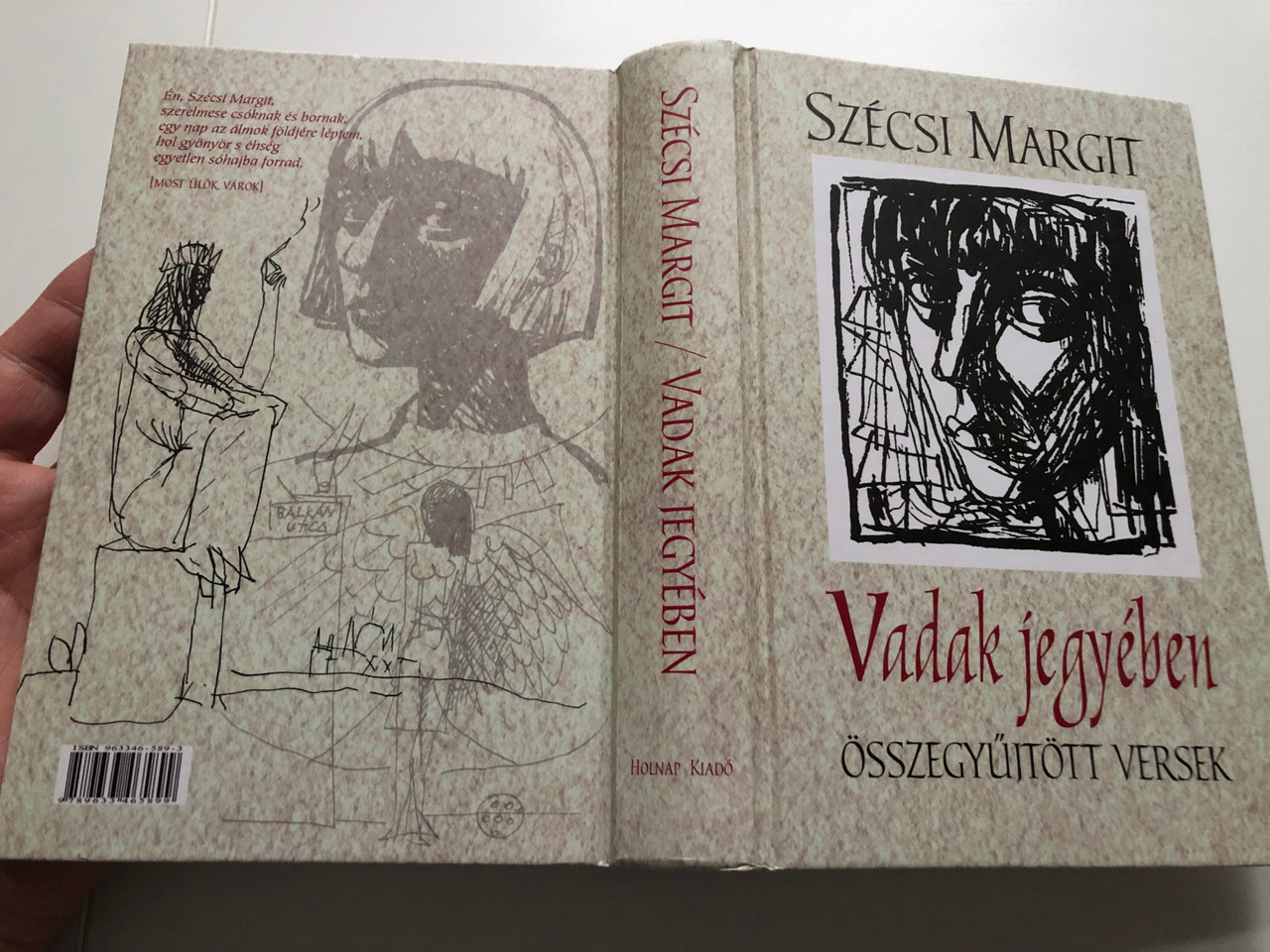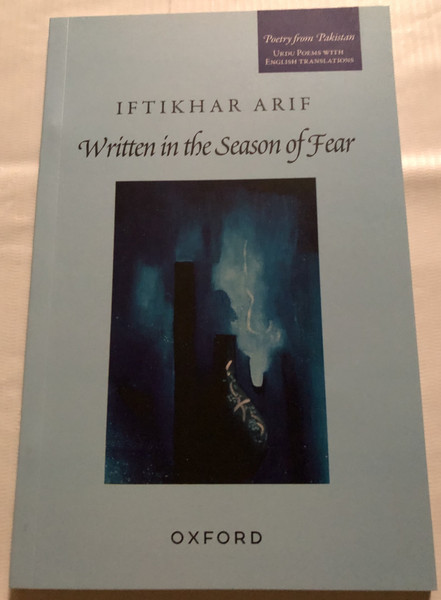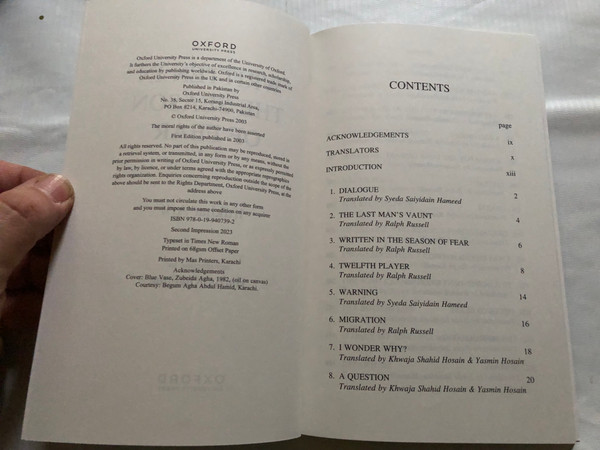Description
Vadak jegyében: Three Decades of Defiant Poetry from the Eternal Outskirts / Paperback
UPC: 9789633465899
MPN: 9789633465899
Brand Name: Holnap Kiadó
Overview
Vadak jegyében (Under the Sign of the Wild) is a monumental collection of thirty years of poetry by Margit Szécsi, published in 2003 by Holnap Kiadó to honor what would have been the poet's 75th birthday. This substantial 544-page volume presents Szécsi's complete lyrical life's work (1928-1990), compiled by her son András Nagy and edited by Tamás Tarján, arranged chronologically as the poet herself wished. In her powerful afterword, Szécsi writes: "I compiled my book from thirty years of poems. Adhering to my revisions, I claim these poems as my own. Their order is chronological, they also answer each other. They came up from the eternal outskirts for human rights: to contribute to the Universal. Their star-kin are the Dózsa György-created blues, and the Gyimes rock. Thus they shine humbly and proudly for the best of my generation." Margit Szécsi (1928-1990) was a three-time József Attila Prize-winning poet, one of her generation's most significant lyric voices, and the wife and creative partner of poet László Nagy (often referenced in these poems as "N. L." or the anagram "Gyanolszál"). Born on Pentecost Sunday, she embraced the "fiery feast of true speech" and dedicated herself to authentic Hungarian expression. Her poetry speaks from the margins—from the "eternal outskirts"—with fierce commitment to justice, truth, and the dignity of ordinary people. This comprehensive collection preserves her unique orthography and visual arrangements, honoring her artistic vision while making available the complete works of a poet who described her homeland as "song made from dust."
Product Features
- Format: Paperback book
- Pages: 544 pages
- Language: Hungarian (Magyar)
- ISBN: 9789633465899 / 978-9789633465899
- Publisher: Holnap Kiadó
- Publication Year: 2003
- Publication Location: Budapest, Hungary
- Poet: Szécsi Margit (1928-1990)
- Coverage: Complete collected poems spanning 30 years
- Compiler: Nagy András (poet's son and legal heir)
- Editor: Tarján Tamás (philological editing)
- Awards: Three-time József Attila Prize winner
- Special Features: Poet's own chronological arrangement, unique orthography preserved, alphabetical poem index, poet's afterword
- Genre: Social poetry, Working-class poetry, Revolutionary poetry, Love poetry
- Themes: Justice, truth, the margins, working people, revolution, love, dignity, defiance
- Style: Direct, passionate, prophetic, socially engaged, formally innovative
- Historical Context: Communist Hungary, 1956 Revolution, social justice movements
Interesting Facts
Margit Szécsi (1928-1990) was one of the most distinctive and socially engaged voices in 20th-century Hungarian poetry. Born in Budapest on Pentecost Sunday—the Christian feast celebrating the Holy Spirit's descent and the gift of speaking in tongues—Szécsi embraced this symbolic connection to "the fiery feast of true speech," dedicating her life to authentic, prophetic poetic expression. She came from working-class origins, what she called "the eternal outskirts," and this perspective profoundly shaped her poetry, which consistently speaks for and with marginalized people. Szécsi was married to László Nagy (1925-1978), one of Hungary's most important post-war poets, and their relationship was one of creative partnership and mutual influence. In her poems, she often references him cryptically as "N. L." or through the anagram "Gyanolszál" (suspect-thread). Her generation came of age during World War II and experienced the 1956 Hungarian Revolution—what she calls "our youth, our entire life was Spring, the May Ace"—only to see it crushed by Soviet tanks. Her poetry is haunted by this betrayal, by what she calls "the cruel and cowardly" who "gambled with everything." Szécsi's poetic voice combines several distinctive elements: working-class consciousness and solidarity with ordinary people, revolutionary spirit and commitment to social justice, prophetic anger against oppression and hypocrisy, deep love for Hungarian language and folk culture, personal intimacy intertwined with political consciousness, and formal innovation including unique orthography and visual arrangements. Her reference to "Dózsa György-created blues" connects her poetry to György Dózsa, leader of the 1514 Hungarian peasant revolt, suggesting her work belongs to a long tradition of resistance poetry. Her mention of "Gyimes rock" references the Gyimes region of Transylvania, known for preserving authentic folk culture—connecting her modernist poetry to Hungarian folk traditions. Despite producing significant work and winning the prestigious József Attila Prize three times, Szécsi remained somewhat marginalized during her lifetime, perhaps because her fierce independence and uncompromising voice didn't fit neatly into either official or dissident literary camps. This 2003 comprehensive edition, compiled by her son András Nagy with philological care by Tamás Tarján, finally presents her complete lyrical work as she intended—chronologically arranged so poems "answer each other," preserving her unique orthographic choices (including unusual use or omission of commas, capitalization, etc.), and including her powerful afterword explaining her poetic vision. The volume includes an alphabetical index distinguishing between vowel pairs (A/Á, E/É, etc.), reflecting the precision with which Hungarian readers must approach her linguistically complex work. Szécsi's description of her homeland as "song made from dust" (Hazám a porból-való ének) captures her aesthetic: poetry that rises from the earth, from humble origins, transforming suffering and struggle into art. Her statement "I am today, as in former times, an elemental part of the people" reveals her enduring commitment to collective rather than merely individual expression. This massive 544-page collection stands as testament to a poet who "lived and loved" and therefore could fight against those who would crush the human spirit, a poet who floated "with fairy certainty in this Golgotha dust-zenith," seeing and judging everything that would humiliate, exploit, or domesticate rather than love humanity—"everything that clips wings."
Publisher Information
Holnap Kiadó is a prestigious Hungarian publishing house based in Budapest, established in 1918. The publisher's commitment to releasing this comprehensive 544-page edition of Margit Szécsi's complete works demonstrates their recognition of her importance to Hungarian literature and their dedication to preserving voices that speak for social justice and authentic human experience. This edition ensures that Szécsi's powerful, defiant poetry—speaking from and for "the eternal outskirts"—remains available to readers who seek literature of political courage and poetic excellence.
We value your feedback! Share your experience with this product to help others make informed decisions. Your review is important to us!
#VadakJegyében #SzécsiMargit #MargitSzécsi #HungarianPoetry #MagyarKöltészet #SocialPoetry #TársadalmiKöltészet #CollectedPoems #ÖsszesFersek #HolnapKiadó #HungarianLiterature #MagyarIrodalom #WorkingClassPoetry #MunkásosztályKöltészet #RevolutionaryPoetry #ForradalmiKöltészet #1956Poetry #JózsefAttiladíj #JózsefAttilaPrize #NagyLászló #WomenPoets #NőiKöltők #PoliticalPoetry #PolitikaiKöltészet #SocialJusticePoetry #HungarianBooks #BudapestPublishing #DefiantPoetry
Vadak jegyében: Három évtized dacos költészete az örök külvárosból
Áttekintés
A Vadak jegyében Szécsi Margit harmincéves költői munkásságának monumentális gyűjteménye, amelyet 2003-ban adott ki a Holnap Kiadó a költő 75. születési évfordulója tiszteletére. Ez a jelentős, 544 oldalas kötet Szécsi teljes lírai életművét (1928-1990) mutatja be, amelyet fia, Nagy András állított össze és Tarján Tamás szerkesztett, kronologikusan elrendezve, ahogy maga a költő kívánta. Erőteljes utószavában Szécsi írja: "Könyvemet harminc év verseiből állítottam össze. Javításaimhoz is ragaszkodva, ezeket a verseket vallom magaménak. Sorrendjük időbeli, egymásnak is felelgetnek. Az örök külvárosból jöttek fel az emberi jussért: hozzájárulni az Egyetemeshez. Csillagrokonuk a Dózsa György-alkotta blues, s a gyimesi rock. Így világolnak alázatosan és büszkén legjava nemzedékemért." Szécsi Margit (1928-1990) háromszoros József Attila-díjas költő, nemzedéke egyik legjelentékenyebb lírai hangja, Nagy László költő felesége és alkotótársa volt (akit ezekben a versekben gyakran "N. L." vagy a "Gyanolszál" anagramma fed). Pünkösd vasárnapján született, és felölelte "az igaz beszéd tüzes ünnepét", élő magyar kifejezésnek szentelve magát. Költészete a perifériáról—az "örök külvárosból"—szól, eltökélt elkötelezettséggel az igazságosság, igazság és a hétköznapi emberek méltósága mellett. Ez az átfogó gyűjtemény megőrzi egyedi helyesírását és vizuális elrendezéseit, tiszteletben tartva művészi vízióját, miközben elérhetővé teszi egy olyan költő teljes munkásságát, aki hazáját "porból-való éneknek" nevezte.
Érdekes tények
Szécsi Margit (1928-1990) a 20. századi magyar költészet egyik legjellegzetesebb és társadalmilag leginkább elkötelezett hangja volt. Budapesten született Pünkösd vasárnapján—a Szentlélek leszállását és a nyelveken szólás ajándékát ünneplő keresztény ünnepen—Szécsi felölelte ezt a szimbolikus kapcsolatot "az igaz beszéd tüzes ünnepéhez", életét hiteles, prófétai költői kifejezésnek szentelve. Munkásosztálybeli származású volt, amit ő "örök külvárosnak" nevezett, és ez a perspektíva mélyen formálta költészetét, amely következetesen a marginalizált emberekért és velük beszél. Szécsi férje Nagy László (1925-1978) volt, Magyarország egyik legfontosabb háború utáni költője, kapcsolatuk kreatív partnerség és kölcsönös befolyás volt. Verseiben gyakran titokzatosan utal rá mint "N. L." vagy a "Gyanolszál" anagrammán keresztül. Nemzedéke a második világháború alatt nőtt fel és átélte az 1956-os magyar forradalmat—amit ő úgy nevez, "ifjúságunk, teljes életünk a Tavasz volt, májusi Ász"—csak hogy aztán lássa, ahogy szovjet tankok leverik. Költészetét kísérti ez az árulás, amit ő úgy hív, "a kegyetlenek és gyávák", akik "mindent megjátszottak". Szécsi leírása hazájáról mint "porból-való ének" megragadja esztétikáját: költészet, amely a földből, alázatos eredetekből emelkedik, szenvedést és küzdelmet művészetté alakítva.
Hashtag-ek magyar nyelven:
#VadakJegyében #SzécsiMargit #MagyarKöltészet #TársadalmiKöltészet #ÖsszegyűjtöttVersek #HolnapKiadó #MagyarIrodalom #MunkásosztályKöltészet #ForradalmiKöltészet #1956Költészet #JózsefAttiladíj #NagyLászló #NőiKöltők #PolitikaiKöltészet #TársadalmiIgazságságKöltészet #MagyarKönyvek #BudapestiKiadó #DacosKöltészet
